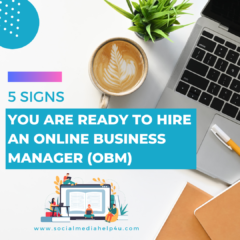Starting up a small business takes a considerable amount of money, but many people choose to take the chance and create a company of their own. There are nearly 28 million small businesses in the U.S., and that number only continues to grow with every new entrepreneur. If you’ve been considering starting a small business but have found the costs to be too high, use these tips and tricks to help you cut down the costs and start building your future career.
Stick To Essential Resources
When you first write up your business plan, you’re likely planning for the best-case scenario. Once you’ve got a rough outline, start going back over it and considering what items and steps you can do without. The more you can slim down on your operation costs earlier, the less money it will take to get started. Just make sure you’re still accounting for all the basic tools and equipment you’ll need for the job. For example, among contractors, 84% say their most commonly used cordless power tool is the power drill. If you’re planning on going into that industry, don’t forget to account for tools in expenses.
Plan For The Future
Thinking your business idea will require a physical location? If you’re planning on building a space for your business to operate out of, consider what construction methods you’ll be using. Some methods can eventually save you money in the right situations. For example, modular constructions reduce energy consumption during the building process by around 67% and reduces energy costs later on for occupants. By planning for the future now, you’ll be able to cut down on recurring payments later on.
Consider Materials
If you’re planning on selling a unique product as part of your business, it can be tempting to use the most high-quality materials available in the creation of your product. However, sometimes you’ll need to cut corners for the sake of your bottom line. Choosing your materials carefully can be a simple way to cut down on overall operational expenses. For example, consider plastic instead of more expensive materials like glass or metal. Just 2 pounds of plastic can deliver 1,300 ounces—roughly 10 gallons—of a beverage such as juice, soda or water. You’d need 3 pounds of aluminum to bring home the same amount of product, 8 pounds of steel or over 40 pounds of glass. You’ll ultimately be saving on material expenses, helping you keep profits up while keeping costs low.
Get Creative
A little bit of creativity in your business plan can go a long way, especially if you’re just starting out. As an example you can offer restricted stock units. Consider what parts of your business you might be able to learn to handle yourself; if you’re skilled with computers, consider doing your own web design, or if you’re an artistic person, you might be able to create your logo yourself. That being said, don’t try to take on everything yourself – you’ll burn yourself out, and some tasks simply require a professional to handle appropriately.
Starting a small business comes with its fair share of hefty expenses, but with the right tips, tricks, and know-how, you can cut down on operational costs to get you off the ground faster. Saving money when starting your business can give you the resources you need to increase your profits. How do you save money with your small business operational costs?









